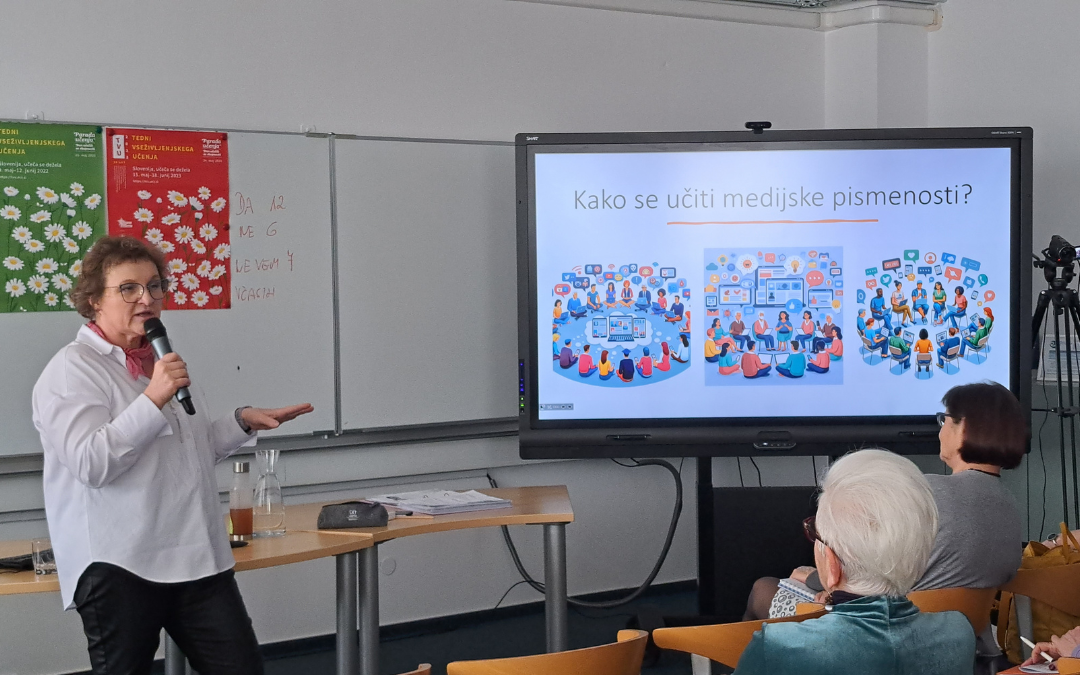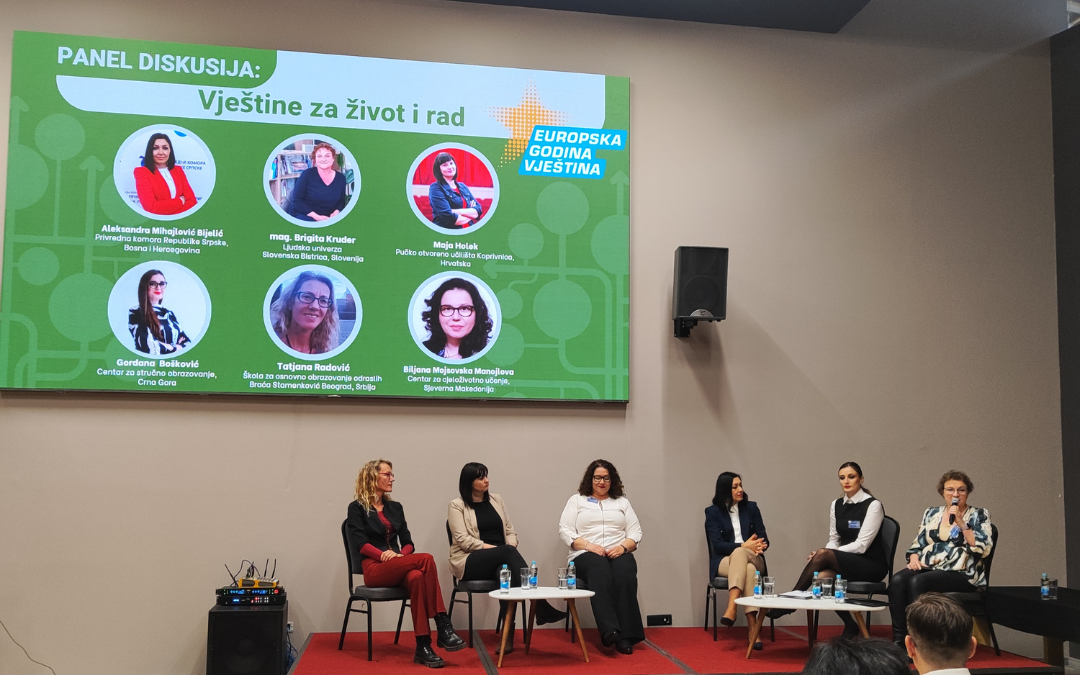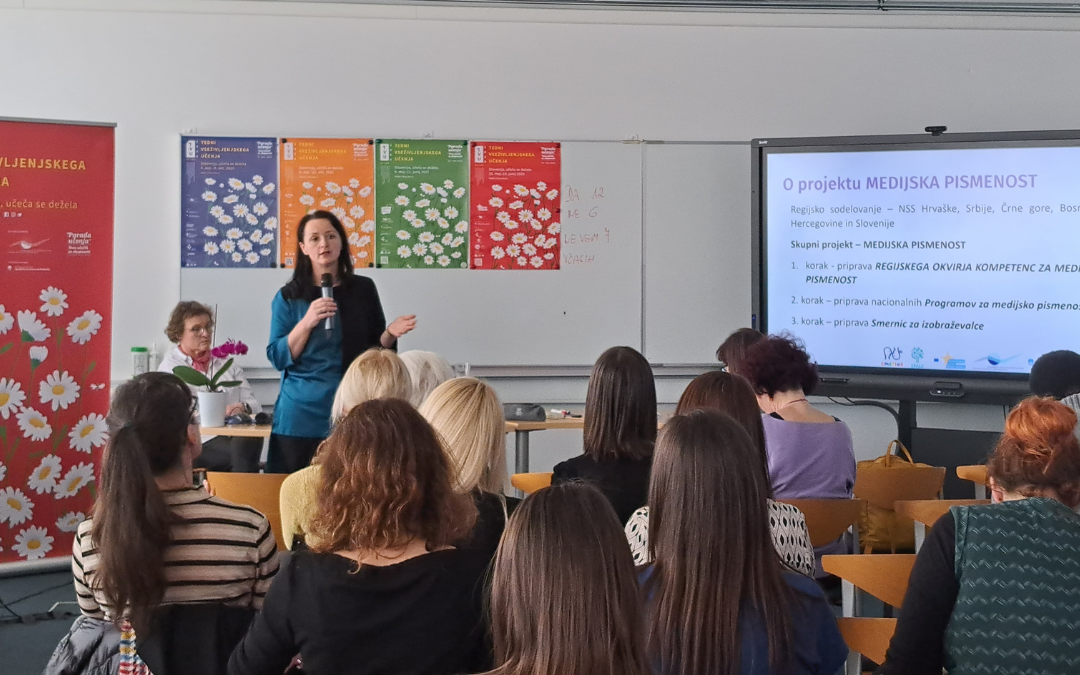The fundamental aim of the Media Literacy for Adults programme is to enhance this skill among adults
Both traditional and modern media are indispensable sources of information. Media publications often lead to decisions, shape opinions and enable the acquisition of many other essential skills. Based on this, adults can consciously make meaningful decisions in numerous life situations. Media literacy is particularly important for vulnerable target groups, as it significantly influences all their life decisions. Every adult should have competencies, knowledge and skills in media literacy, at least at a basic level. This is crucial for empowered functioning in modern society. A large part, or practically all information, is obtained through the media. We have broadly defined this concept: any message conveyed through any medium is media and purposeful.
Regional cooperation of national support services for EPALE
Representatives of NSS EPALE from Bosnia and Herzegovina, Montenegro, Croatia, Slovenia and Serbia have developed a Regional media literacy competence framework. Each of the five participating countries contributed equally to its creation, and subsequently, each country decided what it wanted to prepare for its adults. In Slovenia, a non-formal Media Literacy programme has been developed, and there are plans to prepare a manual for adult educators as they will be the ones who will use a modular programme – either as a standalone programme lasting from 25 to 60 hours or by incorporating individual modules or elements into other formal and non-formal programmes for adults.
Media literacy is a fundamental literacy
We place it alongside reading, writing and verbal communication. In terms of its importance for the quality of life of an adult in modern society, it is similar to digital literacy, but we believe it is even more critical. We understand it more broadly. It forms the foundation for environmental, financial and health literacy, etc., but most importantly, it is crucial for shaping a democratic citizen who is capable of critical thinking, willing to acquire media skills and learn to act ethically in media and use them accordingly. The aim of the programme is thus to enhance the media literacy of the entire society!
We have developed five content modules for the programme:
- Critical Reading and Questioning of the Media Messages
- Media and Values
- Freedom of Speech and Hate Speech
- Manipulation, Misinformation and Stereotypes
- Characteristics of Modern Media, Privacy and Online Data Protection
Who is media literate?
The content is not the most important aspect; it is the process that matters. Therefore, the programme is prepared according to an educational-target process model. Media content changes rapidly, and the specific examples we use for teaching today will undoubtedly be different in a few months. However, the planned learning outcomes will remain unchanged. Successfully mastered, these outcomes will enable a media-literate adult to critically analyse and understand individual media messages. They will be able to evaluate the content, interpret it and act upon it. A media-literate individual is aware of the impact of media content on the perception, behaviour, emotions and attitudes of both individuals and groups. They especially understand the preventive potential of media content and the manipulative nature of all media. Two topics that will undoubtedly receive significant attention are freedom of speech and hate speech, which are often confused in practice. Modern media, their safe use, social networks and the internet will undoubtedly hold an important place in the programme as well.
How does one learn media literacy?
One of the main directions of the programme is the awareness that participants must constantly assess and be conscious of their process thinking. This leads to knowledge transfer, which changes perspectives, attitudes and values. Another fundamental premise is that every adult entering the programme or any module of media literacy is not a blank slate but has numerous experiences. These experiences are either more or less conscious, but they certainly exist and will significantly influence the individual’s activity in acquiring new knowledge, skills and competencies.
The entire programme or individual modules in non-formal educational programmes for adults can be implemented in study circles, non-formal educational programmes for personal growth and acquiring general and professional competencies, in other literacy programmes (financial, environmental, digital, etc.), in educational workshops and events, in programmes of the Third Age University and so on.
The programme’s developers, the working group consisting of Ana Stanovnik Perčič, Darijan Novak, Zvonka Pangerc Pahernik, MSc, and the author of this contribution, believe that the professional staff in ALE are well acquainted with the andragogical cycle and the educational needs of adults. They are also familiar with various forms of programme implementation, into which they can incorporate individual modules or deliver the media literacy programme in its entirety. Study circle mentors can also coordinate the learning. Both groups will collaborate with experts in media literacy: journalists, publicists, communication specialists and others who possess the appropriate competencies to teach individual modules. To ensure that professional staff in ALE acquire the relevant competences for planning, implementing, coordinating and evaluating the Media Literacy programme, we will prepare more workshops and training sessions for them as part of the project.
Brigita Kruder, MSc (brigita.kruder@lu-sb.si), Slovenska Bistrica AEC




